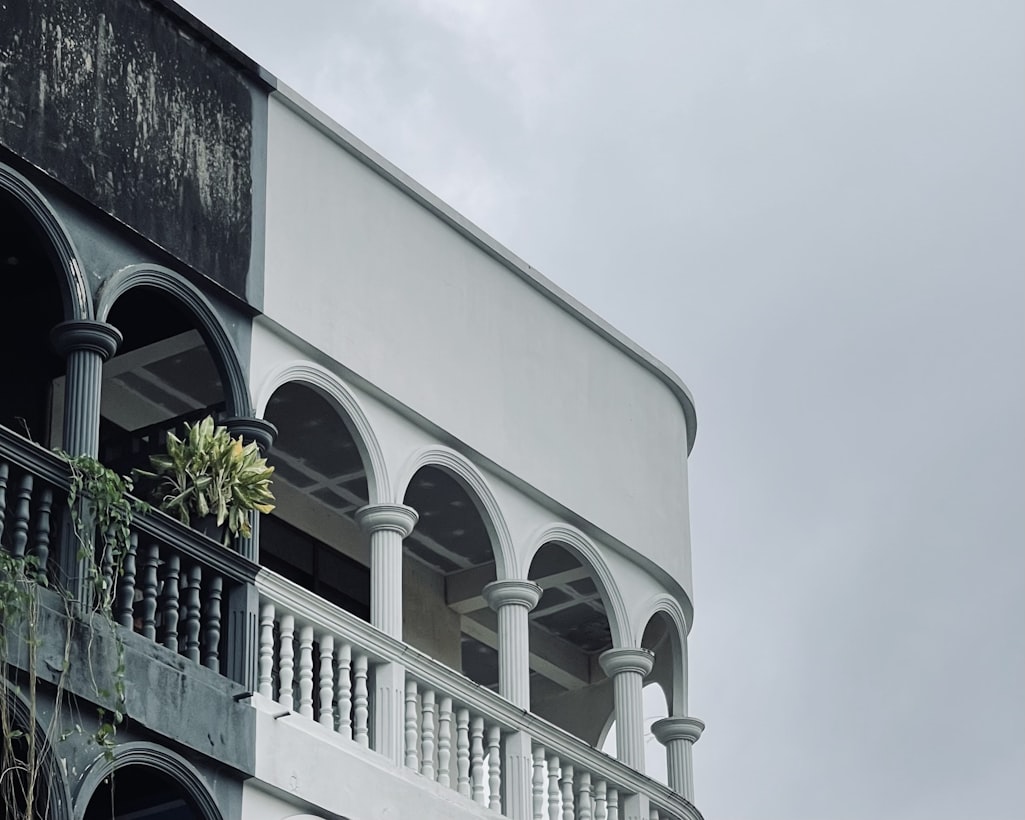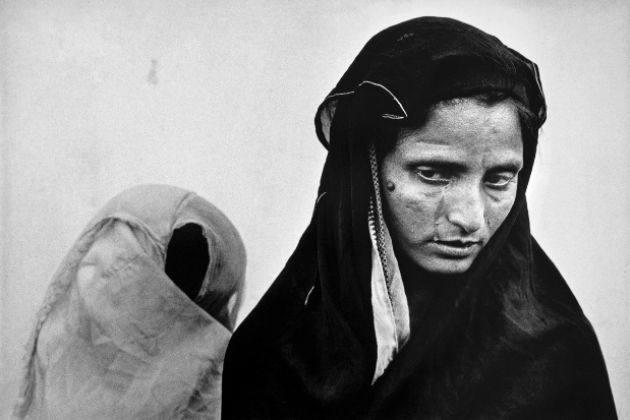
Press release
1971 Liberation War memories recalled to awaken conscience
Drik and UNHCR to launch “The Birth Pangs of a Nation”
Dhaka, 11 December, 2011: Drik in partnership with UNHCR will launch tomorrow, 12 December, a book and a documentary film titled “Birth pangs of a nation,” celebrating 40 years of Bangladesh’s turbulent history at the Chhayanaut Auditorium, House 72, Road 15A, Dhanmondi, Dhaka. This tribute presents through images by the finest photojournalists in the world and personal interviews of photographers, freedom fighters, refugees and care givers, the birth of the nation and record the pain and sacrifice of the ordinary Bangladeshi, in what was one of the most massive human displacements in recent times. There are brief references to the complexities facing modern Bangladesh and its hope for the future.
The year 2011 not only commemorates the 40th anniversary of Bangladesh’s independence but is also the 60th anniversary of the 1951 Convention relating to the Status of Refugees and the 50th year of existence of the 1961 Convention on the Reduction of Statelessness. “The commemorative dates have meaning,” said Shahidul Alam, Managing Director of Drik. “If only to remind us of how it was. If only to warn us that times haven’t really changed. By pointing to the scars of the dead they alert us to the pain of the living. If by recounting the horror that was, we unite in saying ‘never again’ they become a call for action.”
The war left a nation both deeply wounded and scarred amid the joy of emerging as an independent nation. The book and the documentary film is a meticulously researched and present a hitherto unseen visual compilation of a critical struggle for independence of a nation. “The pains that the people of Bangladesh experienced forty years ago – loss of home and loved ones, helplessness, uncertainty about the future – are the same emotions that all displaced people suffer today,” said Craig Sanders, Representative, UNHCR Representation in Bangladesh.
How many lives were lost in that conflict is a matter of controversy – estimates range between tens of thousands to three million. The actual figure may never be known, but grave crimes against humanity were committed, and many of the perpetrators were not held accountable for what they did. It was only this year that Bangladesh initiated trials against alleged war criminals.
The Indian states of West Bengal, Tripura, Assam, Meghalaya, Bihar, and Madhya Pradesh, hosted most of the 10 million refugees – some 6.8 million lived in camps, while another 3.1 million lived with families, friends, or relatives. By mid-May, 330 camps were established to accommodate four million refugees. Of the 825 camps, West Bengal hosted the largest number of camps – 492, with 4.8 million refugees in camps and another 2.4 million with host families, followed by Tripura (276 camps with some 834,000 refugees, and another half million with families).
The statistical figures however do not tell the story of the trauma of families. It is shown in the poignant images and the archival film footage. The work of twenty photographers bring you face to face with the ones that had to bury their loved ones who died as they trekked to cross the border to India, and the widespread anguish of the refugees. One sees the tears of the raped; the sick and starving malnourished children; the mothers themselves weak trying to feed the hungry or the weakened aged’s desperate bid to survive. The scale of the massive and complex humanitarian operation mounted in 1971 was a first for the UN refugee agency and this experience and the work of the following years helped shape UNHCR to become what it is now.
The book and the documentary film forces you to be a traveller with the refugees, experiencing their pain the feel of the cold monsoon winds the pelting of the incessant rain, to feel nauseated by the smell of sickness and death, and wander where the hopelessness and the despair is palpable.
The images also takes you forward to the joy of a newly born nation — a country brimming with hope in the images captured at the end of the war; the long trek back of the refugees to familiar homeland for the longed for sense of normalcy reflected in the curious eyes of a child looking at the new world. In a world littered with conflicts where the innocent poor are the sufferers when struggle for power erupts, the book and the documentary film offers other nations an unforgettable lesson in history.
For live streaming of the event on 12 December 2011
Web package: www.drik.net
Media Contacts:
Ms. Chulie De Silva
Communications Manager, Drik
Mobile: +880 1927122141
Fax: + 880 2 9115044
Published: December 4, 2011
Recent News
-
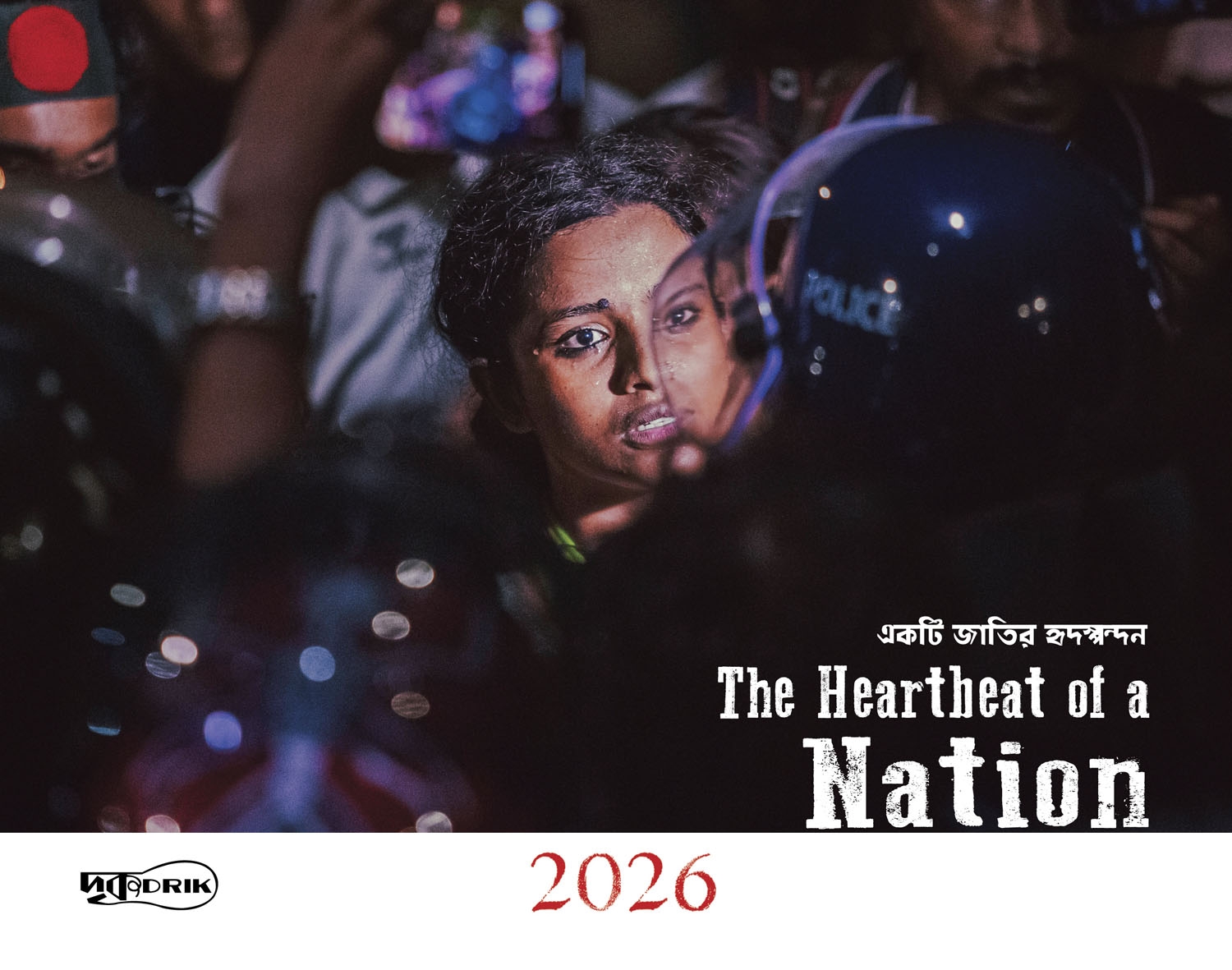
The Heartbeat of a Nation: Drik Calendar 2026
Published: August 21, 2025
-
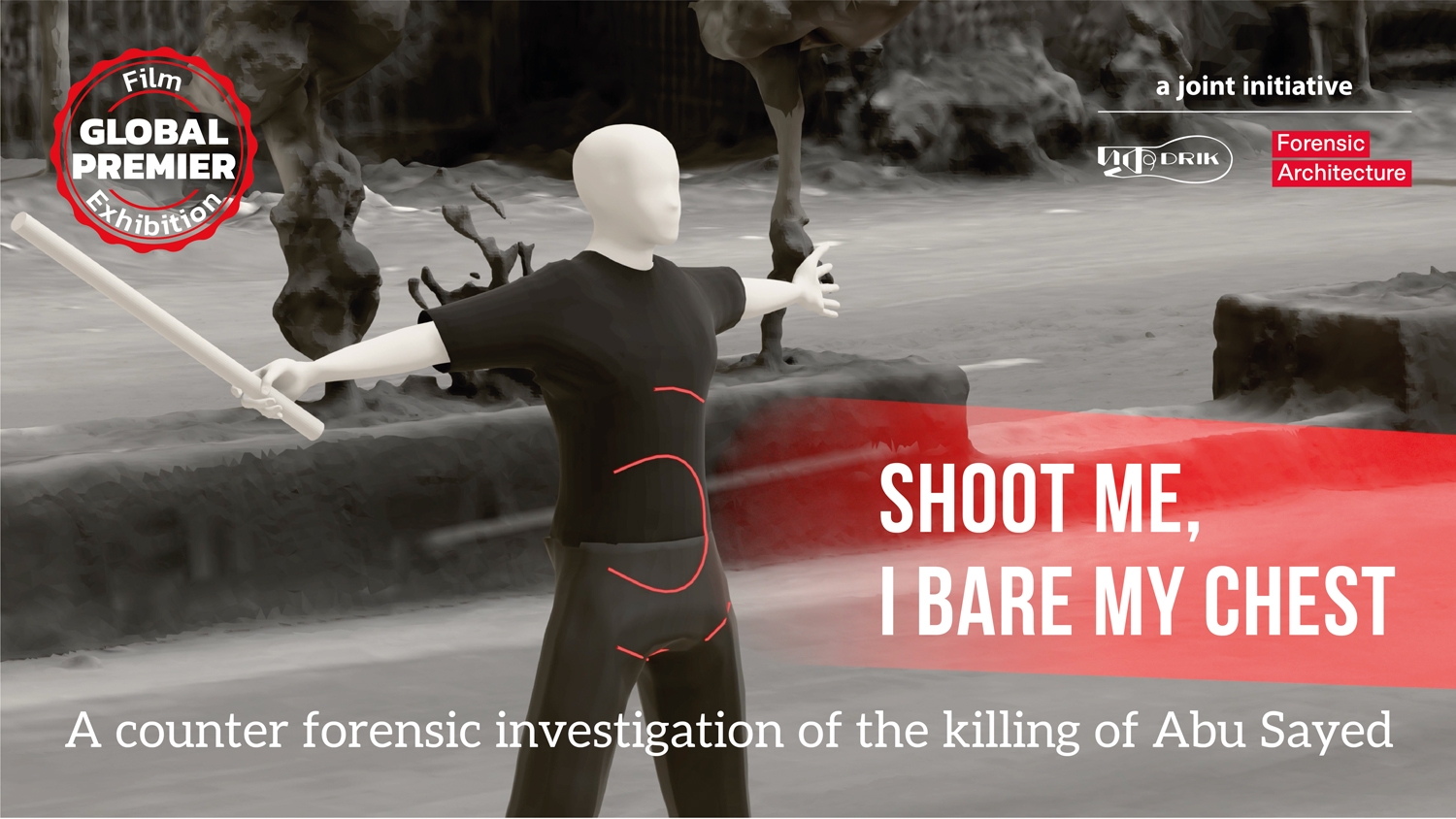
Shoot me, I bare my chest A counter forensic investigation of the killing of Abu Sayed
Published: July 12, 2025
-
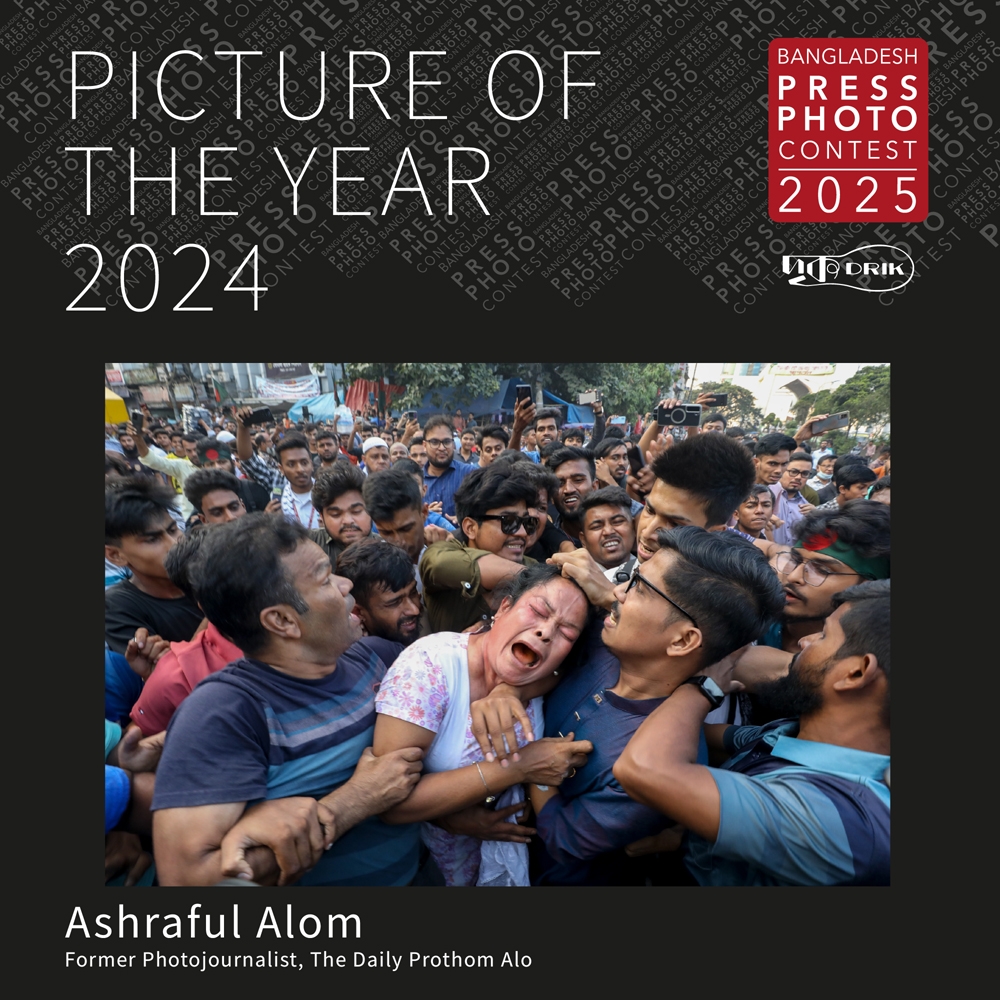
Bangladesh Press Photo Contest 2025 Result Announcement
Published: March 25, 2025
-

গণঅভ্যুত্থান পরবর্তী সাংবাদিকতা: সংস্কার ও সম্ভাবনা
Published: January 14, 2025
-
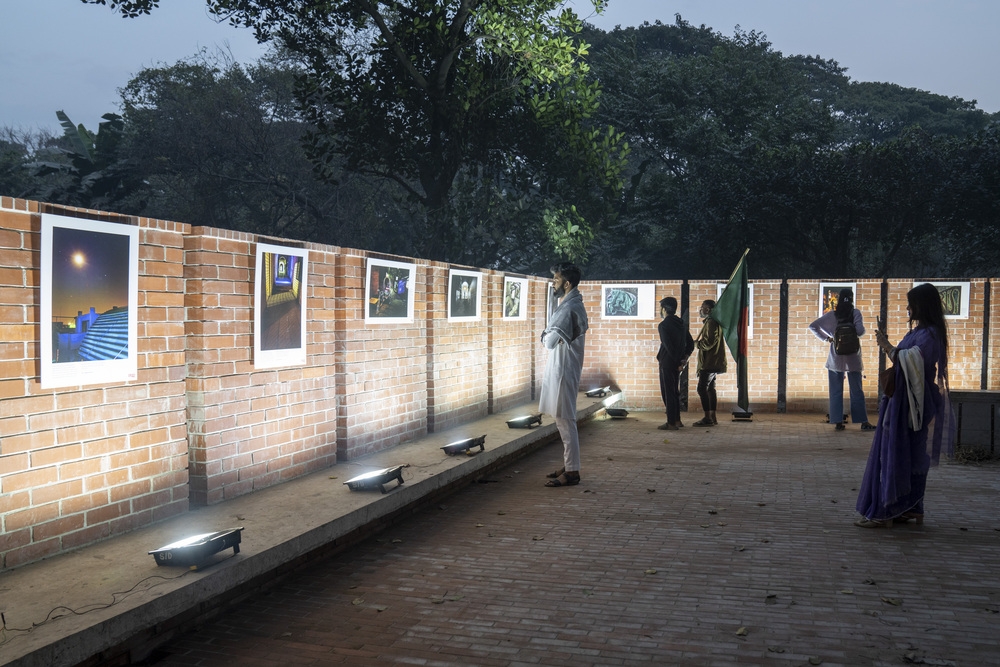
“সোহরাওয়ার্দী উদ্যান যত্নের ডাক” campaign
Published: January 15, 2025
-

Exhibition ‘Border that Bleeds’ by Parvez Ahmad Rony
Published: January 9, 2025
